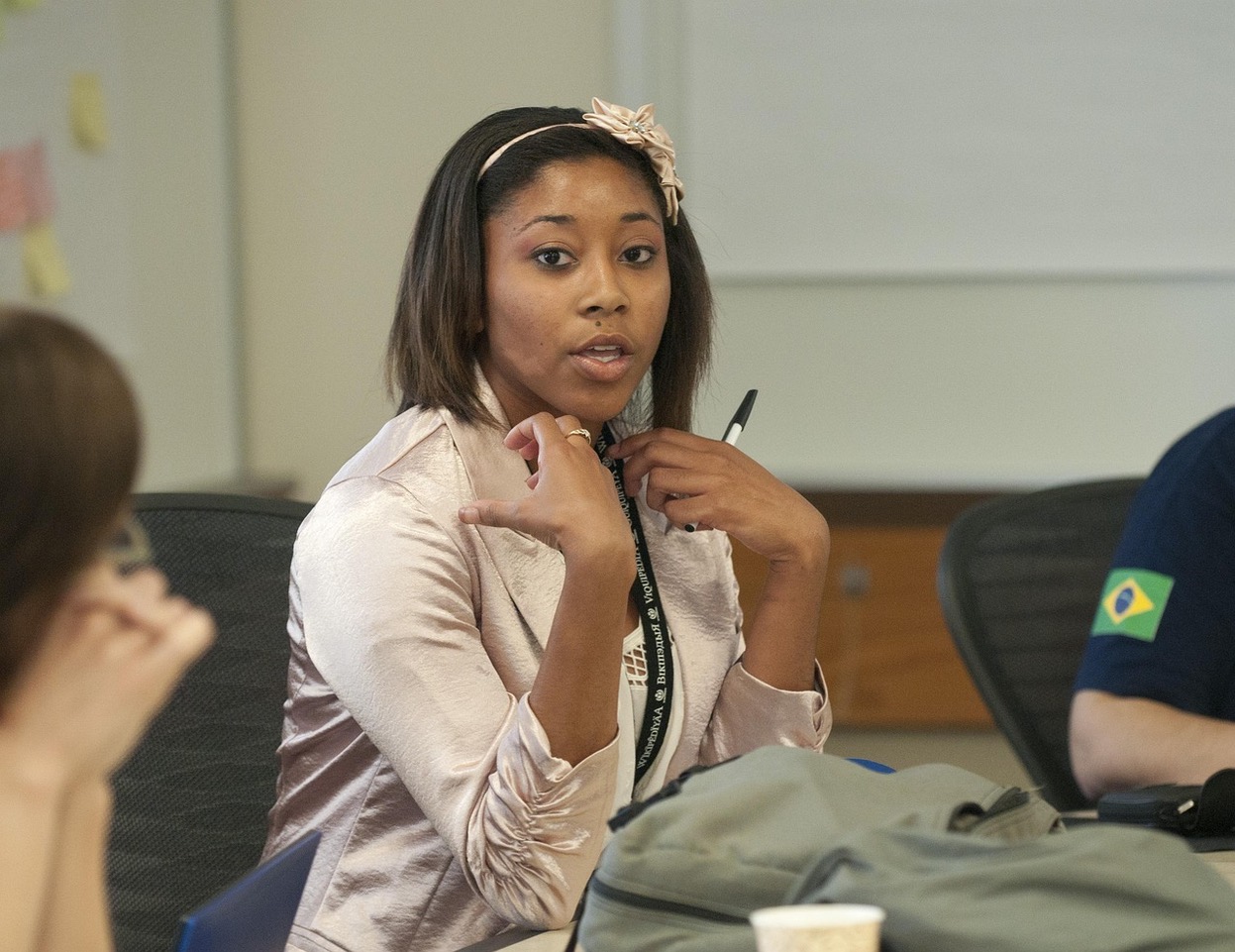A campus visit is one of the best ways to decide if a college truly feels right for you. It’s your opportunity to experience the atmosphere, connect with current students, and explore academic, residential, and social spaces firsthand. To make the most of your visit, plan to attend an information session, take a guided tour, sit in on a class, explore the dorms and dining halls, and stroll through the local town. Bring questions – and take notes.
If you’re wondering what else should be on your campus visit checklist, keep reading. This guide walks you through everything to prepare before you go, what to focus on during the visit, and how to reflect afterward – plus tips for parents.
Why Campus Visits Matter
A campus visit is the closest you’ll get to a “test run” of your future life: walking the quads, observing the community, and imagining what it might feel like to live there for four years. For many students, those firsthand impressions are how the big decision gets made.
A campus visit can really shift a student’s thoughts about which school is (or isn’t) a great fit. Sometimes it’s the small things – the interaction in a classroom, the vibe in the dining hall, or how current students talk about their professors. A website can tell you about curriculum and facilities, but it can’t answer the most important question: Can I picture myself here?
That’s why preparing a well thought-through campus visit checklist matters. With some planning, you can move beyond a college’s key selling points and get a genuine feel for whether a school is the right fit and a place where you will really thrive.
Before You Go: How To Prepare
To get the most out of your campus visits and truly feel what student life is like, start planning your campus tour early. A little planning goes a long way and getting organized in advance will help you to evaluate a college and make the most of your campus tour. By scheduling tours, preparing questions, and knowing what to look for, you’ll step onto campus with confidence.
Research and Schedule
- Book an official tour and information session through the admissions site.
- If possible, schedule department sessions related to your intended major.
- Aim for a visit while classes are in session (not finals week or breaks).
- Arrange parking or transportation ahead of time.
Prepare Your Questions
- Make a note of questions that go beyond what you can learn on the school website–for example, instead of asking what courses are offered, ask about opportunities for undergraduates in research and internships.
- Check recent campus news – new facilities, policy changes, or awards – to reference in conversation.
- Tailor some questions to your priorities and interests–for example, support for international students, career services, or clubs.
Campus Visit Day Checklist
Your visit day is your chance to get a real feel for what it’s like to live and learn on campus, so make the most of every moment.
Start with Official Programming
- Arrive early for the admissions information session.
- Take the official campus tour with a current student guide, and take the opportunity to ask lots of questions.
- Attend any department-specific sessions relevant to your major.
Do Some Academic Exploration
- Sit in on a class and get a sense of the academic culture – for example, is it collaborative or competitive?
- Visit department offices and talk to staff.
- Explore research facilities, labs, or studios relevant to your areas of interest.
Campus Life Investigation
- Walk through residence halls to see different housing options.
- Eat in the dining hall – food is a big part of the college experience.
- Check out the library, fitness center, and student organization spaces.
- Take time to observe how students interact when they’re not “on show” for the tour.
- Ask questions of staff and students who are not part of the official tour programming. You might get some more honest perspectives from members of the community who are not in ‘marketing mode.’
By approaching your visit with curiosity and openness, you’ll leave with a clearer sense of whether this campus could truly feel like home.
Questions to Ask During Your Visit
A big part of finding the right college fit is meeting with members of the campus community. While on your campus visit remember to:
Ask Students:
- What’s your favorite and least favorite thing about this school?
- How easy is it to get time with professors outside class?
- What do students do on weekends – stay on campus or leave?
Ask Faculty or Advisors:
- How accessible are internships or research positions for undergraduates?
- How does advising work for first-year students?
- What support exists for career exploration and job placement?
Ask Staff (Admissions, Financial Aid, Student Services):
- How do you support students from outside the region or country?
- What mental health and wellness resources are available?
- How does the school help students prepare for study abroad or graduate programs?
By connecting with people, exploring the local area, and asking lots of questions, you’ll gain a deeper, more realistic sense of whether you can see yourself thriving in this environment. See also our article on Smart Questions to Ask on a Campus Visit.
Make sure you take notes during your visit. Especially if you are visiting several schools, the details can blur together quickly – from dorm vibes to dining options and student support services. Jot down your first impressions, standout moments, and anything that surprised you. These notes will be invaluable later when you’re comparing campuses, writing “Why this college” essays, and deciding where you felt most at home.
After Your Visit: What To Reflect On
Your campus visit doesn’t end when you drive away. Taking time to reflect and organize your impressions will help you turn what you saw and felt into meaningful insights for your college decisions.
- Compare your experience to your priorities. Did the academics, community, and overall atmosphere align with what you’re looking for in a college? Revisit your personal “must-haves” and see how well this school fits.
- Talk it through. Discuss your impressions with family, friends, or your college counselor. Explaining what resonated – or what didn’t – can help clarify your instincts and reveal patterns across different visits.
- Follow up thoughtfully. Send a short thank-you note to anyone who took time to meet with you, and reach out to admissions if you have follow-up questions or want to learn more about a particular program or opportunity.
- Stay organized. Keep your notes, photos, and handouts from each school in one place. A simple digital folder or spreadsheet will make it easier to compare schools later when decisions and deadlines start to approach.
Quick Campus Visit DOs and DON’Ts
A successful campus visit can have a significant impact on where you ultimately decide to study, so knowing what to do, and what to avoid, will help you get the most out of this important experience.
DOs: Maximizing Your Campus Visit
Be Prepared and Professional
- Plan well ahead: campus visit slots often get booked up early
- Arrive on time for all scheduled activities
- Dress appropriately for the weather and walking
- Charge your phone and bring a portable charger
Ask Meaningful Questions
- Inquire about academic support services and tutoring
- Ask about student internship and graduate job placement rates
- Learn about research opportunities for undergraduates
Engage Authentically
- Participate actively in information sessions
- Take advantage of opportunities to meet faculty and staff
- Make the effort to chat with students, staff, and faculty who are not part of the official campus tour
Observe Campus Culture
- Notice the diversity of the student body
- Observe the general atmosphere and energy on campus, both academically and socially
- Watch for signs of school pride, core values, and community involvement
DON’Ts: Common Mistakes to Avoid on your Campus Visit
Don’t Leave it to the Last Minute
- Don’t show up without researching the school beforehand or having thought about what you want to learn that goes beyond the school website
- Avoid scheduling back-to-back college visits without time to process
- Don’t visit during finals, or when students are away
Don’t Miss the Big Picture
- Avoid focusing only on prestige – school fit is more important than rankings
- Don’t ignore red flags or dismiss your gut feelings
- Don’t compare everything to your high school experience
Don’t Make These Social Mistakes
- Avoid dominating Q&A sessions or information meetings
- Don’t take photos in residence halls or private spaces without permission
- Never criticize other schools you’re considering
Bonus: Parent Tips for Campus Visits
A common mistake that parents make is wanting to take the lead and ask all the questions. Parents: your role is support, not spotlight. Don’t get us wrong, you’re welcome on the tour, but it’s easy to overshadow your student with your own curiosity.
- Let your student lead conversations. Jump in only if they miss something important.
- Ask practical questions your child may not think of (safety, healthcare, financial aid logistics).
- Give your student space afterward to share their own impressions first, and don’t make assumptions about what they might think of the visit.
Final Thoughts
The right college should challenge you academically and feel like a place where you belong. Campus visits are the best way to test that fit. Use your checklist as a guide, but also trust your instincts.
In the end, a campus visit is about whether you feel at home walking through the quad, chatting with students, or sitting in a classroom. Pay attention to those first impressions and gut feelings. A campus will likely become your home for a few years. Make sure it’s where you want to live and learn. If you’re just beginning your college journey, Fortuna’s College Roadmap Package helps students in early high school build a clear, confident path toward their future applications. Sign up for a free consultation to find out more.



